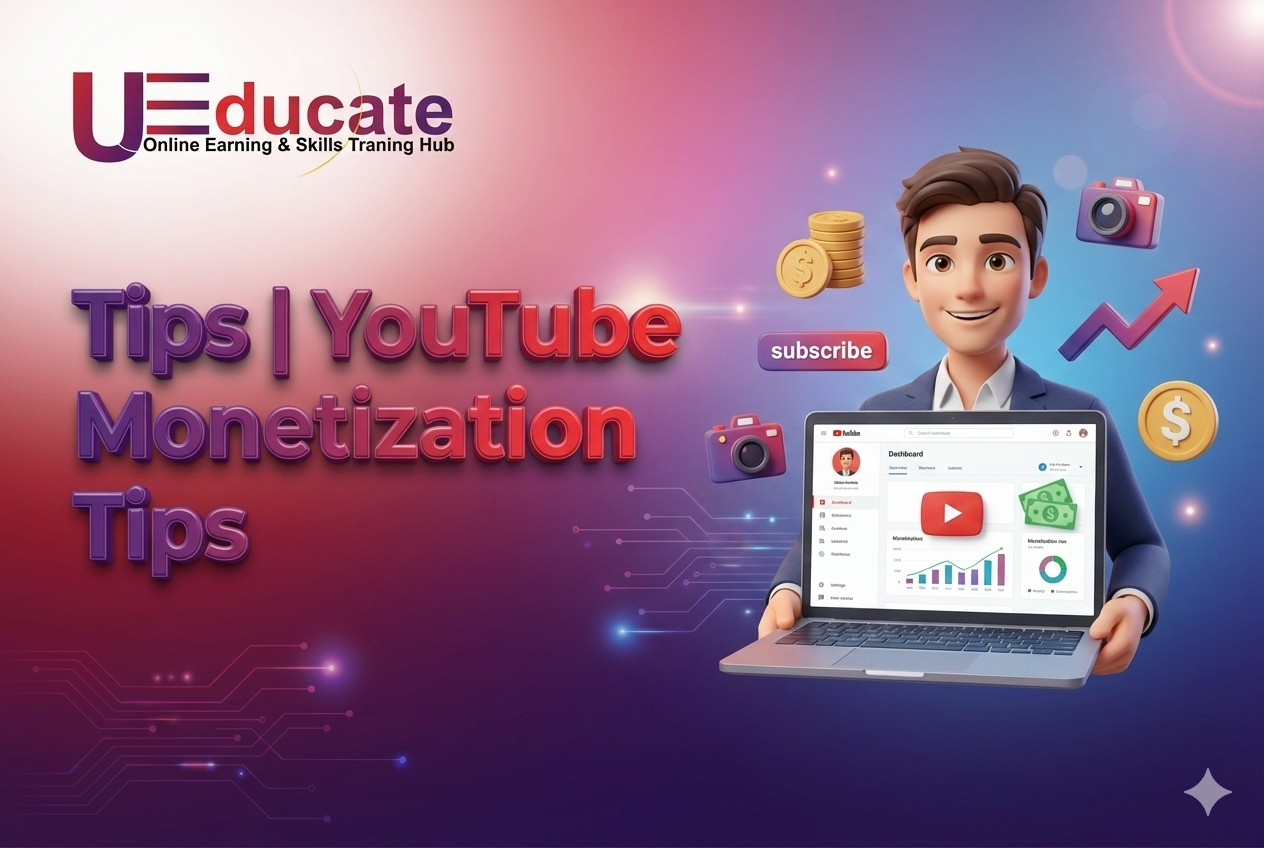Benefits of Digital Marketing to Small Business
In the digitally transforming world in which we live, the relevance of digital marketing is paramount. This has been important, to say the least, more so to small businesses. The advent of the internet changed the theme of how businesses used to operate and collaborate with their customers. It is the bouquet of opportunities given by digital marketing that actually helps a small business grow, compete, and become a success in the marketplace. The essay looks at a number of benefits that digital marketing has in store for a small business by potentially evening out the playing field, improving engagement with customers, offering measurable results, and optimizing cost efficiency.

1. Leveling the Playing Field
Of all the reasons for using digital marketing, one of the biggest is that it makes small businesses more competitive against larger opponents. Traditionally, big companies reigned because they have huge resources and thence therefore could afford to put much money in advertising. Small businesses would usually find themselves at a disadvantage as traditional marketing avenues like television, radio, and print media were really expensive.
However, digital marketing does avail a huge array of cost-effective tools and platforms through which small businesses can reach their target audience without the need to spend a lot of resources. Such social media platforms as Facebook, Instagram, Twitter, and others have proposed great personalized advertising opportunities at small budgets for small businesses. Search engine optimization and content marketing also help small companies compete for visibility on search engines without investing large-scale marketing budgets. These tools allow small businesses to compete effectively with larger firms and make it possible for potential buyers to pay attention.
2. Better Customer Engagement

Customer engagement is one of the important means to ensure customer connections, relationships, and brand loyalty. Digital marketing is a collection of ways in which small businesses relate with their customers more, from the possibilities of obtaining information and awareness. For example, social media websites allow businesses to engage customers through commentary, private messages, and interactive content.
Another powerful tool for customer engagement: email marketing. Through email campaigns, small businesses keep their customers informed about promotions, novelties, company news, etc. Personalized email content can evoke a feeling of connection and relevance with the customer, thereby getting him to feel valued and most probably be a repeat business.
Moreover, digital marketing helps organizations cater to their customers in real-time. Live chats help the website visit customers, and their queries are answered in no time via social media replies or with the help of instant messaging applications. Instant communication supports a positive experience for customers and helps shape a better rapport between the organization and its clients.
3. Measurable Results and Data-Driven Learnings
One of the best advantages of digital marketing is its ability to deliver measurable results. Stats and results are usually hard to track through traditional marketing, leaving digital marketing as the means through which a database full of tools and data analytics are offered to closely monitor performance.
This, for example, makes it possible for a small business to monitor traffic, user activity, and website conversion rates. Such data enable the showing of relatively successful marketing strategies and the strategies that need change. Some of the best small business platforms like Google Analytics will provide information on click-throughs, bounces, and social media engagement so that small businesses can make informed decisions in optimizing their marketing.
Additionally, digital marketing enables one to conduct A/B testing, meaning one could test diverse versions of an ad or a page to find out which one performs better. This kind of iterative approach opens up the possibilities to continually improve and refine marketing strategies to impact campaigns for better results.
4. Targeted Advertising and Personalization

The powerful targeting capabilities in digital marketing make reaching out to exact segments in the audience possible, giving small businesses the ability to communicate and inform a very targeted audience accurately. Businesses today can afford to make targeted campaigns for some identified segments using very specific advertisement campaigns through tools like Google Ads, Facebook Ads, among others.
For example, a local bakery can send advertisements directly to people within a certain geographic placement of themselves who show interest in baked goods or desserts. This thus ensures the proper targeting is being aimed at the few people more liable to be interested in the products or service of the business.
Another key benefit of digital marketing is personalization. By being able to use data and customer insights, small businesses could make contents and offers that are tailor-made and most likely to resonate with preferences and behaviors. Personalizing the marketing increases the touchpoints of a customer with the content and also further raises chances of conversion potential and customer retention.
5. Cost-effective and {Cost Flexible}
The use of digital marketing in small businesses is advantageous as it is very economical. Old marketing methods are usually involving many costs, thus barring small businesses, especially the ones that are working on tight budgets. On the other hand, digital marketing avails a wide range of cost-effective options that will be used to support the maximization of returns and business performance.
For instance, pay-per-click (PPC) advertising allows for one to work within a budget and one pays for a service only if a user clicks on one’s ad. Social media advertising allows one flexible budgeting, starting with a small amount to invest and scaling up if effective. With content marketing and SEO—though involving much effort over time—the costs will be generally much lower when compared to traditional advertising.
In addition, the budget with digital marketing is both flexible and controllable, meaning small businesses can make decisions on how much to spend on marketing, where such performance is realized, and be able to switch spending based on performance if required. This flexibility of the budget helps in making sure that resources are put to effective use, and the efforts in marketing are steered in the right direction in regard to business objectives.
6. More Visibility and Awareness of Brands
Brand recognition and awareness in building a small business are, no doubt, one of the most important aspects. Marketing digitally will help open up multiple channels through means of which a larger number of consumers can be targeted within the market.
Importance of SEO in any business: A business can be more visible within the major search engines like Google, so when used rightfully, through web or content optimization, SEO can boost not only the ranking of a small business in the search engine results pages but visibility for morphing potential customers into real ones.
Other ways how social media adds to creating more visibility for a brand include that with regular posts, engaging content, and advertisements on these platforms, there will be an urge for the acquisition of a new audience and retention of the current customers. Apart from that, content marketing can also add to the visibility of a brand by the publication of blogs, videos, and infographics as information to the customers as well as by establishing authority for the business enterprise in the industry.
7. More Flexibility and Innovation
The ever-changing digital marketing landscape offers small businesses the opportunity to innovate and remain current with new trends and technologies. This flexibility will enable businesses to try various strategies and approaches to find what works best for their audience.
An example is social influencer marketing, which has come up as a new avenue for small businesses to promote their products by partnering with social media giants. Upcoming technologies such as AR and VR greatly open paths to interact with the targeted customers, helping them to create great interaction.
Trends small businesses can leverage include user-generated content and customer-driven contributions aimed at building credibility and authenticity in brands. The point is that by keeping oneself abreast with the trends in the industry and adapting to advancements in technology, a small business can easily stay competitive and continuously improve its marketing efforts.
8. Better Customer Insights and Feedback
Digital marketing offers ample opportunities for small businesses to understand consumer preferences, behavior, and feedback. Online surveys, reviews, and even conversations on social media can weigh a gold mine of information about what customers like and do not, hence enabling a business to make data-driven decisions.
Positive reviews or negative feedback, as well as customer response, are important for selling better products or services. Responding to customers in the review or comment section is how small businesses can resolve issues, build trust, and ensure that they care for the satisfaction of their customers.
In this regard, Google Analytics and social media insights tools will offer details down to the minute regarding audience location, demographics, interests, and online behavior. This data will enhance the knowledge of a target market for a business and, in turn, will help the business fully tailor the marketing strategy in order to fulfill the needs and expectations of their customers.
9. Enhanced Local Marketing Opportunities
For small businesses, whose businesses largely operate within the local community, digital marketing is a very powerful tool to reach out to and engage with the local community. For example, local SEO is bound to be very influential in enhancing the visibility of businesses on local search results to have a draw of customers from their geographical area.
A Google My Business listing is easy to set up and optimize. It enhances businesses with local visibility toward free tools that enable each one to give out critical information, including location, hours of operation, and contact information.
Social media platforms also provide an opportunity for local targeting; businesses can advertise their products and services to users located in a specific geographical area. Local interaction with the audience on social media and participation in the events happening in the area may further strengthen the centering of the business.
In a nutshell, digital marketing for small businesses has leveled the playing field, boosted customer engagement, delivered measurable results, and ensured overall cost efficiency. All this will be realizable by a small business through the use of available digital marketing tools and strategies that will be key in enabling them to compete with even their larger counterparts, and build commendable customer relationships, thus achieving their growth objectives. The capability to identify a target audience, measure performance, and adjust to the newest trends really gives small businesses an edge.












Greetings,
Have you ever thought about how media exposure could transform your business?
At Global Wide PR, we help businesses build credibility and attract new customers by getting them featured on top-tier platforms. To show you what we can do, we’re offering a free article on Digital Journal—a simple way to enhance your brand’s visibility and reputation.
If you aim to broaden your reach even more, we can also publish your article on major networks such as Yahoo Finance, Market Watch, and AP News.
If you’re interested, click the link below to register, and we’ll provide more information:
https://bit.ly/glowidepr
Best,
Claudine
Global Wide PR
Should you decide to unsubscribe from our updates, you can do so effortlessly. Simply visit https://bit.ly/unsubscribe25 and fill in your website information.
Normally I do not read article on blogs however I would like to say that this writeup very forced me to try and do so Your writing style has been amazed me Thanks quite great post
This post is a creative journey! Speaking of journeys, takes you places.
Hi,
Your brand deserves to stand out, and we’re here to help.
At Global Wide PR, we specialize in connecting businesses with top media platforms to increase visibility and credibility. As a gesture to get started, we’re offering a free article on Digital Journal—a great way to showcase your business to a wider audience.
For those looking to maximize exposure, we can also feature your brand on affiliates of FOX, NBC, CBS, ABC, and 300+ other sites for just $297. These placements can help you build trust and attract new customers.
To take advantage of this opportunity, click the link below to sign up on our site, and we’ll get back to you AS
Looking forward to helping your brand shine!
Best regards,
Claudine
Global Wide PR
We value your preferences and understand that you might prefer not to receive our updates. To unsubscribe from our list,
GetResponse is a game-changer for email marketing! It offers powerful automation, user-friendly tools, and excellent deliverability—making campaigns seamless and effective. Plus, their analytics help optimize performance effortlessly. Great news! Now you can get 30% off until April 5th. Perfect time to upgrade or try it out! 🚀 Follow the link.